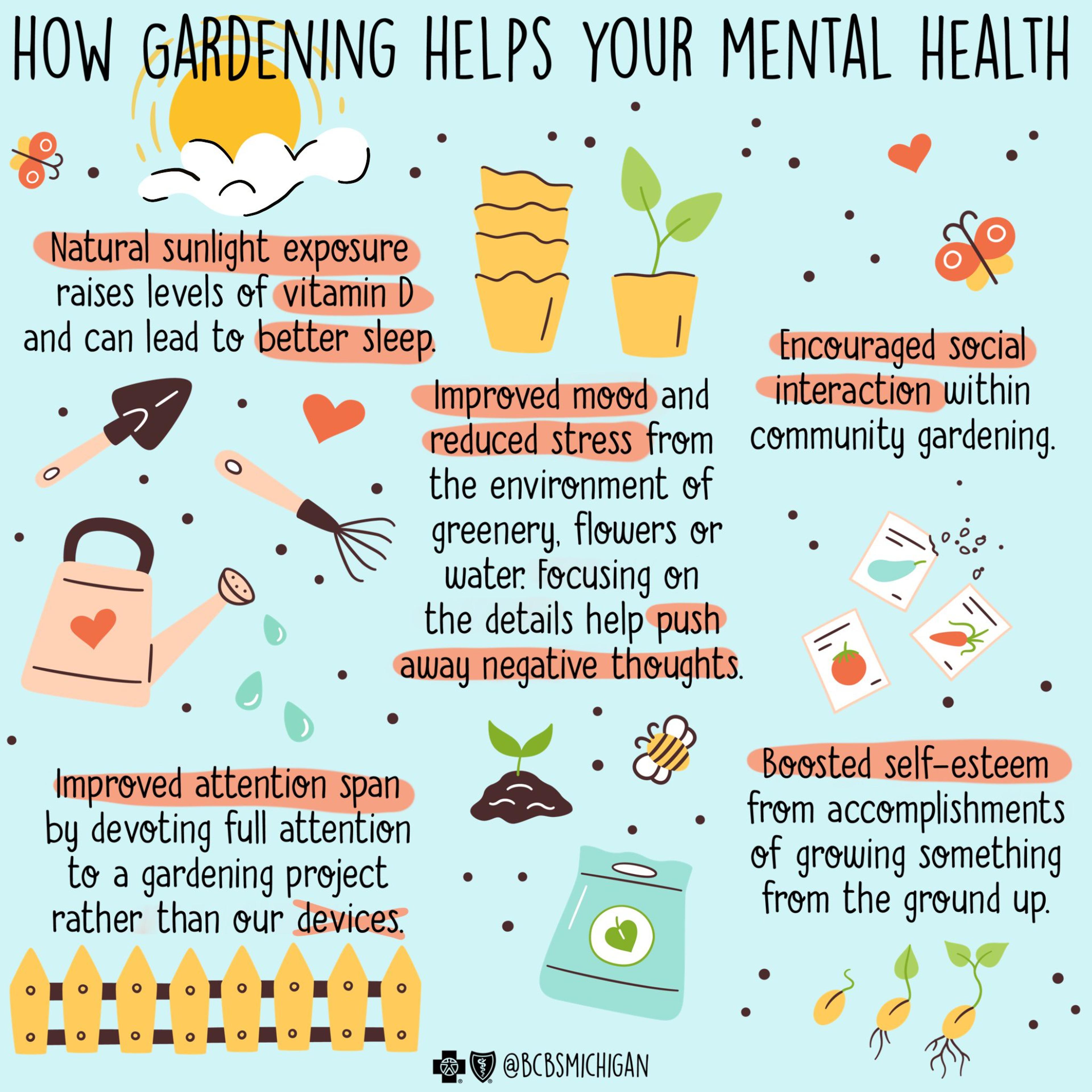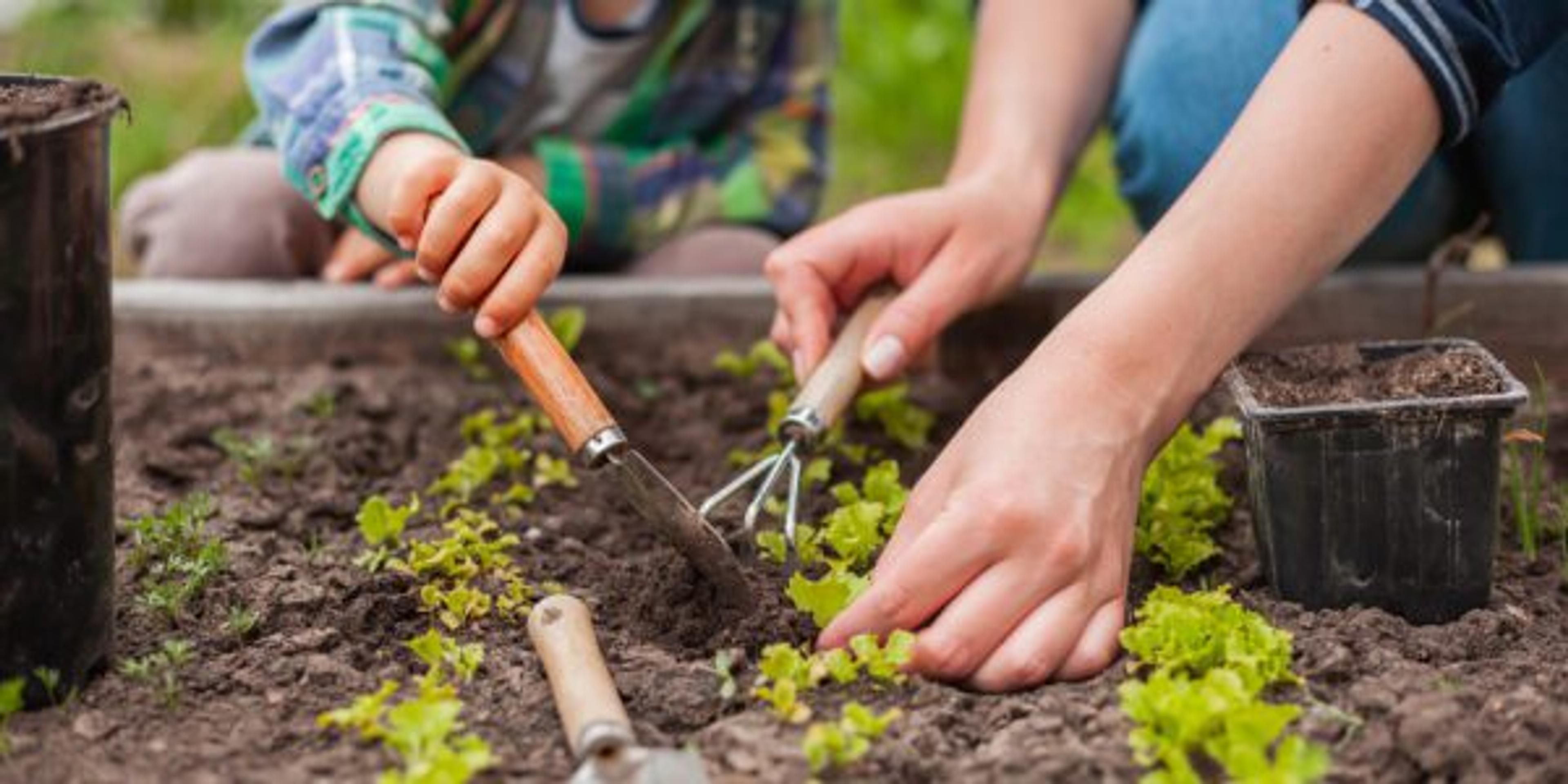Can Gardening Improve Mental Health?
Jake Newby
| 3 min read

Spring is near and the sun is spending a little more time with us each day, which means many of us will soon roll up our sleeves and return to our gardens.
Gardening is one of the most rewarding hobbies out there. Growing our own food is an economic and environmental victory, and the sheer beauty of an indoor or outdoor garden is always a sight to behold.
Perhaps lost in the weeds amid all its benefits is the mental health boost gardening gives us.
What are the mental health benefits of gardening?
Gardening’s physical benefits are pretty apparent. When we’re yanking weeds, raking, shoveling, and pushing a wheel barrel around, we’re burning a whole lot of calories, while improving muscle strength and restoring dexterity.
But research shows that gardening can be just as healthy for the mind as it is for the body. Here are the mental health boosts we receive while knee-deep in all that soil and mulch:
Natural sunlight exposure: With more sunlight exposure comes higher levels of Vitamin D, which is a nourishing nutrient for our blood cells, bones, and immune system. Sunlight exposure can also lead to better sleep through the stabilization of our body’s internal clock.
Improved mood and reduced stress: Hospitals have used “healing” gardens for years to help improve the surroundings for patients, visitors, and staff, which speaks to the soothing properties gardens provide in general.
Studies have shown that simply looking at environments dominated by greenery, flowers, or water can help promote recovery or restoration from stress.

Focusing on the details of gardening can push negative thoughts to the back of our minds and make us feel better in the moment, leaving a lasting feeling of peace and tranquility.
Encouraged social interaction: A higher sense of community is a great thing for the mind, as is working together to achieve shared goals.
A 2020 study on community gardening provided evidence for the notion that “community gardening, along with other types of green landscape exposures, can enable residents to connect with nature and in turn enhance the mental health of community gardeners.”
Higher levels of “subjective well-being” were reported by community gardeners in the study, likely stemming from the combined effects of the physical activity, connection to nature, gardening experiences and social elements.
Improved attention span: Many of us can probably admit that we spend too much time in front of screens, immersed in technology. By leaving our devices behind and devoting full attention to a gardening project, we can take distractions out of the equation and practice concentrating on what’s directly in front of us.
Multiple studies link green outdoor settings with reduced ADHD symptoms.
Boosted self-esteem: Successfully growing fruits, vegetables and other plants should be considered an accomplishment. We should find pride and positivity in literally growing something from the ground up, something we can eat, nourish, and share with our families.
Interested in joining a community garden this spring or summer? The American Community Gardening Association website has a searchable map that lists well over 125 community garden listings in Michigan. Just enter an address, city, or zip code, zoom in, and read up on the community gardens near you.
Photo credit: Getty Images
Related:





